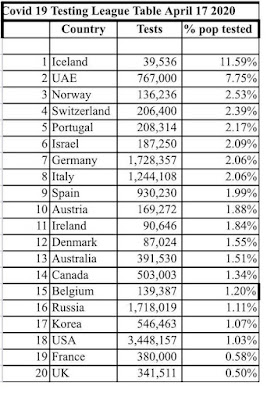So the really big news today, as Guatemala's new infection rate appears to plateau, is that someone actually made it out alive from the ICU.
Not quite the roughly 60% success rate of the UK, but it's a start.
Guatemala may turn out to be fortunate that it hasn't invested heavily in provision for the elderly. As western nations start to gather unfortunate stats from beyond the hospitals, it would appear that a third of deaths in the UK have taken place in care homes. In Sweden the proportion is closer to a half.
The US had a new peak in overall mortality today: 2700. Yet New York City is also reporting 5302 'probables' which did not make it into the state-level reckoning, which would lift the daily tally to truly scary levels.
Meanwhile, the White House acts as if a corner has been turned.
Let's just pause to reflect on those numbers again: between three and eight thousand 'excess' deaths are reported today, April 29th, in the USA and it is only rather indirectly headline news. (A proportion of the deaths may be catch-up data from earlier, but still...)
Meanwhile, the White House acts as if a corner has been turned.
Let's just pause to reflect on those numbers again: between three and eight thousand 'excess' deaths are reported today, April 29th, in the USA and it is only rather indirectly headline news. (A proportion of the deaths may be catch-up data from earlier, but still...)
















